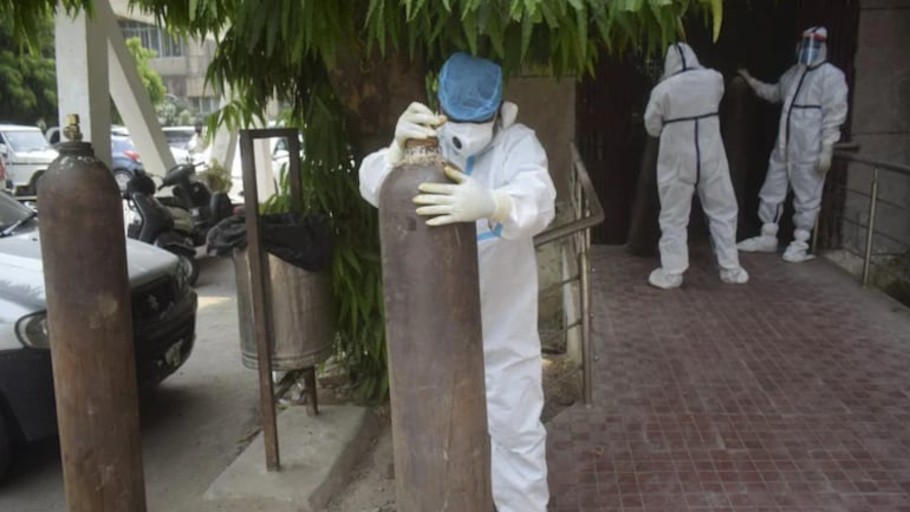
Where is the accountability for denial of oxygen?
Where is the accountability for denial of ‘oxygen’. If information about oxygen or lack of it is denied, what can a citizen do?

Information is oxygen in a democracy. If information about oxygen is denied, what can a citizen do?
In April an activist and freelance journalist, Saurav Das, filed an RTI request. He sought information about a nine-member empowered group set up a year earlier under the chairmanship of the secretary, Department for Promotion of Industry and Internal Trade. When the first wave of the pandemic began, the department was responsible for coordinating the supply of PPE kits, RT-PCR test kits, N-95 masks and gloves. Subsequently, it became responsible for the supply of medical oxygen as well. Das’s RTI request was for the specific dates, agenda and minutes of the committee’s meetings, and presentations made to it.
It is an open secret that in spite of sanctions, approvals and funds, the establishment of contemplated oxygen plants was not initiated and that it stopped at tenders’ level for more than eight months.
The government denied the request, citing all available clauses of sections of the RTI Act that allow exemptions, without thinking whether or not they can be invoked. One should try to estimate the stretch of imagination the government is using to cite grounds of exemption such as national security, strategic interests, commercial confidences, intellectual property and Cabinet papers. Almost every exception clause was mentioned, and the CPIO never cared to justify how disclosure could be a threat to national security. High courts and the SC stated several times that mere mentioning of clauses will not be useful, and CPIO should justify why he is invoking them. What kind of intellectual property it is that deserves to be kept as secret? What is commercial confidence? Which cabinet paper is being sought?
Also read: Promising the sun and the moon? It could be legally binding
It is undisputed that several patients died not because of corona infection but mainly due to lack of ‘oxygen’. That is why the government is afraid of disclosing specific data. The reason is not ‘national security’ but fear of adverse publicity through exposure of the truth about inefficiency and recklessness of the administration.
The first appeal does not serve any purpose in this nation, because the so-called senior officer occupying the statutory seat as First Appellate Authority (FAA) to hear appeals from rejection of RTI request, simply sits there to endorse whatever is stated by CPIO. Their seniority, experience and wisdom, if any, do not result in serious review at all in most cases. This is the attitude of 90 per cent of first appellate authorities. Shame on these seniors. The CPIO and FAA did not apply their minds while rejecting it for national security reasons. Unless there is accountability for such kind of unjustifiable rejection, the CPIOs will do it repeatedly with all impunity.
Then it reaches the Central Information Commission as the second appeal and it was heard within a couple of months. The Central Public Information Officer (CPIO) argued that the empowered group was set up in a time of crisis to cut across the several arms of the government and ensure that bureaucratic hassles did not impede decision-making. “These proposals and deliberations contain highly sensitive information,” he said. The CIC deserves all appreciation for this; directed the government to give it in 10 days. That is great.
Also read: What we have lost with the death of Stan Swamy
The Central Information Commission was critical of the Union government, a rare response in recent times, and slammed the public authority’s blanket denial of information related to a committee overseeing medical oxygen supplies during the pandemic. The CIC pointed that its rationale was “far-fetched” and “unjustified”. The Information Commissioner Vanaja Sarna directed the government to provide the RTI requested within 10 days.
The CIC has rightly dismissed the government’s defence, saying that the citing of exemption on the grounds of Cabinet discussions “appears to be an afterthought, which seems far-fetched also”. The exemption cited related to national security was “also not justified”. The CIC further directed the CPIO to provide a reply within 10 days. But the question that needs to be asked is why should the CPIO not punished with all possible penalties and why the liability to compensate the requester be imposed on public authority and why not the disciplinary action initiated against the CPIO and FAA for their reckless and illegal denial? If not, what is the purpose of this RTI Act? Why shouldn’t the state be held liable for denial of oxygen and also the denial of information about it?
Where is the accountability for denial of ‘oxygen’?
(The writer is professor & dean of School of Law, Mahindra University Hyderabad, and formerly Central Information Commissioner)
(The Federal seeks to present views and opinions from all sides of the spectrum. The information, ideas or opinions in the articles are of the author and do not reflect the views of The Federal)


